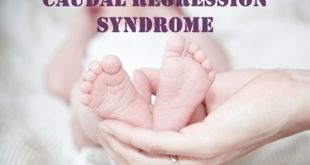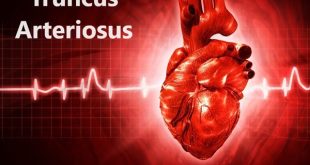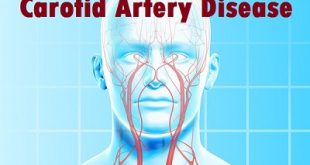Definition
Congenital heart defects (also called CHDs) are heart conditions that a baby is born with. These conditions can affect the heart’s shape or how it works or both. CHDs can be mild or serious. CHDs are the most common types of birth defects. Birth defects are structural changes present at birth that can affect almost any part of the body. They may affect how the body looks, works or both. Birth defects can cause problems in overall health, how the body develops or how the body works.
Critical congenital heart defects (also called critical CHDs or critical congenital heart disease) are the most serious congenital heart defects. Babies with critical CHDs need surgery or other treatment within the first year of life. Without treatment, critical CHDs can cause serious health problems and death. Nearly 1 in 100 babies (about 1 percent or 40,000 babies) is born with a heart defect in the United States each year. About 1 in 4 babies born with a heart defect (about 25 percent) has a critical CHD. Some heart defects don’t need treatment or can be treated easily. But others, like some critical CHDs, may need surgeries over several years.
Types of Congenital Heart Defects
There are many different types of congenital heart defects. Some are commonly called a “hole in the heart” because they involve an abnormal connection between the heart’s chambers. But other types of heart defects involve:
- Abnormal heart valves
- Blood flow that’s blocked from entering or leaving the heart
- Abnormal connections of the blood vessels to the heart
- Parts of the heart that are too small to work properly
Types of congenital heart defects include:
- Aortic stenosis
- Atrial septal defect (ASD)
- Atrioventricular canal defect
- Bicuspid aortic valve
- Coarctation of the aorta (COA)
- Ebstein anomaly
- Hypoplastic left heart syndrome
- Patent ductus arteriosus (PDA)
- Patent foramen ovale (PFO)
- Pulmonary atresia
- Pulmonary stenosis
- Tetralogy of Fallot (TOF)
- Total anomalous pulmonary venous return
- Transposition of the great arteries
- Tricuspid atresia
- Truncus arteriosus
- Ventricular septal defect (VSD)
Sometimes, a child can be born with more than one congenital heart defect.
Congenital Heart Defects Risk factors
Certain environmental and genetic risk factors might play a role in the development of congenital heart disease, including:
- Genetics. Congenital heart disease appears to run in families (inherited). It’s associated with many genetic syndromes. For instance, children with Down syndrome often have congenital heart defects. Genetic testing can detect Down syndrome and some other genetic conditions while a baby is still in the mother’s womb.
- German measles (rubella). Having rubella during pregnancy may affect how the baby’s heart develops while in the womb.
- Diabetes. Having type 1 or type 2 diabetes during pregnancy also may affect a baby’s heart development. Gestational diabetes generally doesn’t increase the risk of congenital heart disease.
- Medications. Taking certain medications while pregnant can cause congenital heart disease and other birth defects. Medications linked to heart defects include lithium for bipolar disorder and isotretinoin (Claravis, Myorisan, others), which is used to treat acne. Always tell your health care provider about the medications you take.
- Alcohol. Drinking alcohol while pregnant has been linked to an increased risk of heart defects in the baby.
- Smoking. If you smoke, quit. Smoking during pregnancy increases the risk of congenital heart defects in the baby.
Causes of Congenital Heart Defects
In around eight out of 10 cases, the reason for the congenital heart defect is unknown. Some of the known causes of CHD include:
Genes – 20 per cent of cases have a genetic cause
Other birth defects – A baby affected by certain birth defects, such as Down syndrome, is more likely to have malformations of the heart
Maternal illness – Illness of the mother during pregnancy (for example, rubella – now rare) may increase the risk of congenital heart disorders
Medication and drugs – Medication (over-the-counter or prescription) or illicit drugs taken by the mother during pregnancy may increase the risk of congenital heart disorders
Alcohol – A mother who drinks large amounts of alcohol during pregnancy may increase the risk of congenital heart disorders
Maternal health – Factors such as unmanaged diabetes and poor nutrition during pregnancy may increase the risk
Maternal age – Babies of older women are more likely to have a birth defect than babies of younger women.
Congenital Heart Defects Symptoms
The symptoms of congenital heart defects include:
- Heart murmur
- Rapid, fluttering, pounding heartbeats (heart palpitations)
- Abnormal heart rhythms (arrhythmia)
- Bluish tint to the skin, lips and fingernails (blue baby, cyanosis)
- Cool, clammy skin
- Fast breathing
- Shortness of breath
- Fainting
- Poor feeding – especially in infants because they tire easily while nursing
- Poor weight gain in infants
- Fatigue during exercise or activity in older children
- Irritability and/or prolonged crying
- Abnormal rounding of the nail-bed (clubbing)
- Stroke
Complications
Potential complications of a congenital heart defect include:
- Congestive heart failure. This serious complication may develop in babies who have a significant heart defect. Signs of congestive heart failure include rapid breathing, often with gasping breaths, and poor weight gain.
- Heart infections. Congenital heart defects can increase the risk of infection of the heart tissue (endocarditis), which can lead to new heart valve problems.
- Irregular heart rhythms (arrhythmias). A congenital heart defect or scarring from heart surgery may cause changes in the heart’s rhythm.
- Slower growth and development (developmental delays). Children with more-serious congenital heart defects often develop and grow more slowly than do children who don’t have heart defects. They may be smaller than other children of the same age. If the nervous system has been affected, a child may learn to walk and talk later than other children.
- Stroke. Although uncommon, some children with congenital heart defects are at increased risk of stroke due to blood clots traveling through a hole in the heart and on to the brain.
- Mental health disorders. Some children with congenital heart defects may develop anxiety or stress because of developmental delays, activity restrictions or learning difficulties. Talk to your child’s provider if you’re concerned about your child’s mental health.
Diagnosis and test
You or your baby may need one or more of the following tests to determine whether symptoms are caused by a congenital heart defect:
- Echocardiography or echo is a painless test that uses sound waves to create moving pictures of the heart. It can help diagnose a heart defect or be used to follow progress over time. Echocardiography used during pregnancy (fetal echocardiography) can sometimes be used to help find a congenital heart defect before a baby is born
- Electrocardiogram (EKG or ECG) to evaluate the rhythm of the heartbeat
- Cardiac catheterization to measure the pressure and oxygen level inside the heart chambers and blood vessels. This can help the doctor figure out whether blood is flowing from the left side of the heart into the right side of the heart, instead of going to the rest of the body
- Chest X-ray to show whether the heart is enlarged. It can also show whether the lungs have extra blood flow or extra fluid, which can be a sign of heart failure
- Genetic testing to determine if particular Genes or genetic conditions are causing the congenital heart defect. Your doctor may refer you or your child to a doctor who specializes in genetic testing
- Cardiac MRI to diagnose a heart defect or follow progress over time
- Pulse oximetry to estimate how much oxygen is in the blood
Treatment and medications
Depending on the severity and type of congenital heart defect involved, its treatment varies. Some babies may have mild heart attacks that get cured by themselves over time. Other children may have a more severe manifestation of defects that call for extensive treatment. In such cases, your options include:
Medications
Numerous medications can help the heart function more efficiently. Some may also be used to prevent the formation of blood clots and to control an irregular heartbeat.
Implantable Heart Devices
Certain devices such as pacemakers that help regulate an abnormal heart rate and implantable cardioverter defibrillators (ICDs) that can correct irregular heartbeats, can prevent some of the complications associated with congenital heart defects.
Catheter Procedures
These permit doctors to fix or repair congenital heart defects without opening the chest and heart surgically. Here, the doctor inserts a catheter through a vein in the leg and guide it up to the heart. Using small tools threaded through the catheter, s/he then proceeds to correct the defect. With advancement of technology most of heart defects can be closed in the Cathlab with catheter procedures. It decreases risks & complications of cardiac surgery.
Open-Heart Surgery
These may be required if catheter procedures are unable to repair a defect. These can close holes in the heart, widen blood vessels, or repair heart valves.
Heart Transplant
In cases where a congenital heart defect is too complex to be repaired, a heart transplant may be resorted to. During this procedure, a donor’s healthy heart replaces the patient’s heart.
Prevention of Congenital Heart Defects
How can I reduce the risk of a heart defect?
Scientists don’t have all the answers yet as to what causes heart defects other than random gene mutations. But, there are things that place you at higher risk (smoking, alcohol, certain medications, etc.) and these should be avoided during pregnancy. There are otherwise no proven strategies to prevent CHD.
You should follow your healthcare provider’s instructions during pregnancy, including:
- Don’t use recreational drugs.
- Get all recommended screening tests during pregnancy to detect problems as early as possible.
- Manage any health conditions, such as diabetes and phenylketonuria.
- Stop smoking and avoid secondhand smoke.
- Avoid alcohol.
 Diseases Treatments Dictionary This is complete solution to read all diseases treatments Which covers Prevention, Causes, Symptoms, Medical Terms, Drugs, Prescription, Natural Remedies with cures and Treatments. Most of the common diseases were listed in names, split with categories.
Diseases Treatments Dictionary This is complete solution to read all diseases treatments Which covers Prevention, Causes, Symptoms, Medical Terms, Drugs, Prescription, Natural Remedies with cures and Treatments. Most of the common diseases were listed in names, split with categories.








Very good explanation
I am appreciate your work
Thank you 100%.